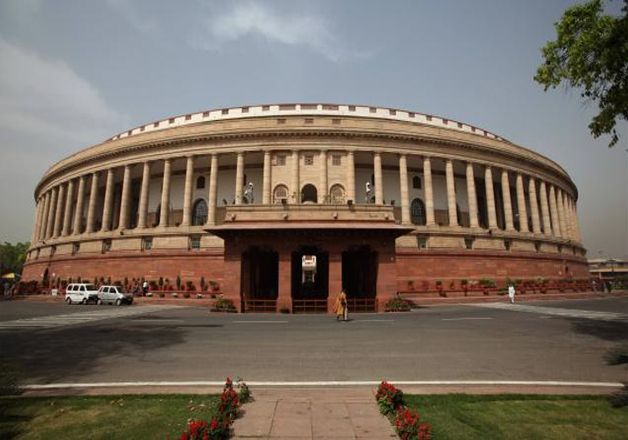This article is written by Oishika Banerji of Amity Law School, Kolkata. This article provides a detailed analysis of the Indian Parliamentary Group (IPG).
Table of Contents
Introduction
Increased diplomatic relations among nations across the world have been responsible for uniting various nations thereby promoting international relations. The Indian Parliamentary Group (hereinafter referred to as “the group”) is one such group of our democratic nation that promotes parliamentary diplomacy with several countries, strengthening democratic institutions and validating transparency. It is significant to point out that fostering inter-parliamentary relations has been carried out for several years now. But the same has gained the spotlight in recent times due to the steady surge of interdependence among nations in today’s global environment. This has facilitated Parliamentarians from different countries to meet, and discuss the upfront challenges possessed by democracy. Collaborative efforts yield positive results which in turn helps in the overall growth and development of a democratic nation. The Indian Parliamentary group being an autonomous body saw the light of the day in the year 1949 as pursuance of a motion that was adopted by the Constituent Assembly on 16th August 1948. As inter-parliamentary relations assume great importance in today’s dynamic world, there arises a need for a link to exist between different parliaments present in this world. The scenario in India concerning this link has remained active due to the machinery of the Indian Parliamentary Group that has carried out goodwill missions, exchanges of delegations for several years now. This machinery thus acts as a National Group of the Inter-Parliamentary Union (IPU) as well as the Indian Branch of the Commonwealth Parliamentary Association (CPA). This article will help the author gain the necessary knowledge about this machinery.
Composition of the Group
Before delving into the composition of the group it must be known that there exist no formalities behind the formation of an Inter-Parliamentary Group. Further, its admission to the Union which is a Federation of National Groups also avoids formalities. A group can be formed in each of the Parliament by the members of the National Parliament of respective countries. It may be constituted all by itself, and membership of the group shall be announced. Being active for over sixty years now, the Indian Parliamentary Group has opened its membership for all the members of the Parliament. The Group must be comprised of the following individuals along with the members:
- The Speaker of the Lower House of the Parliament, Lok Sabha as ex-officio President;
- The Deputy Speaker, and the Deputy Chairman of the Lok Sabha, and the Rajya Sabha respectively as the ex-officio Vice Presidents of the Parliamentary Group; and
- The Secretary-General of the Lok Sabha taking the position of ex-officio Secretary-General of the Indian Parliamentary Group.
The Secretariat of the House has been provided with some responsibilities which are necessary for the effective functioning of the Group; namely:
- Enrolling the members of the Parliamentary Group;
- Holding various meetings of the Group such as Annual General Meeting, Executive Meeting, etc;
- Handling the accounts of the Group.
Room for former members of the Group has also been made provided they become associate members of the Parliamentary Group being entitled to a set of restrictive rights only such as:
- They cannot take part in the meetings, conferences, and discussions held by the Indian Parliamentary Group as a representative.
- They are prohibited from any kind of travel concession that the general members are entitled to.
There are currently eight Parliamentary Friendship Groups of India namely:
- India-China Parliamentary Friendship Group.
- India-European Union Parliamentary Friendship Group.
- India-Japan Parliamentary Friendship Group.
- India-Mongolia Parliamentary Friendship Group.
- India- Republic of Korea Parliamentary Friendship Group.
- India- Russia Parliamentary Friendship Group.
- India-Vietnam Parliamentary Friendship Group.
- India- Latin American Countries Parliamentary Friendship Group.
Aims and objectives of the Group
The Indian Parliamentary Group was formulated with certain aims and objectives which have been laid down hereunder:
- Promoting personal contacts among Indian Parliamentarians;
- To work towards the establishment of peace, harmony, arbitration, prosperity, and cooperation among various nations across the world;
- Arranging political discussions, and suggestions on the development of Parliamentary institution, lectures on socio-economic needs, challenges in the field of education, defence, etc by the distinguished members of the Parliament;
- Making arrangements of foreign visits for the Parliamentarians with the underlying aim to build successful contacts with members of Parliament of other nations.
Based on these aims, and objectives; the Indian Parliamentary functions have been discussed below.
Functions of the Group
Functions that are majorly undertaken by the Indian Parliamentary Group have been presented hereunder;
- As has been discussed previously, the Indian Parliamentary Group acts as a platform that connects the Indian Parliament with other Parliaments across the globe. This platform is maintained by means of efficient diplomatic practices such as delegation exchange, hosting conferences, signing of treaties, foreign country visits, bilateral talks with the foreign parliaments.
- The Indian Parliamentary Group addresses the worldwide Parliamentarians by means of sending over delegates to foreign nations thereby aiming to increase cooperation, and harming that country.
- The two major functions of the Indian Parliamentary Group which it started carrying out from the date of its formation are being a National group of the Indian Parliamentary Union, and being the main branch of CFA in democratic India.
- In order to maintain a balanced relation with other nations, communication, and discussions on various topics that are common between the domestic, and the foreign nation, are the two driving tools. Therefore, the Indian Parliamentary Group has a definite role in conducting seminars, and symposia on subjects that locate interests at both national, and international levels. This effort of bringing nations together is often successful.
- Assistance is required to carry out development and maintain the stable growth of the nation. The Indian Parliamentary Group, while sending its members abroad for visit, makes it necessary for them to communicate their aims and objectives to Parliamentarians of foreign States.
- Bilateral relations play a key role in bracing diplomatic relations with foreign countries. The Indian Parliamentary Group promotes such relations by constituting Friendship Groups thereby building social, political, cultural contacts between nations. This process also involves exchanging cultural information, views on similar issues of the countries, etc.
- Awards help in validating the work which the members of the Parliamentary Group relentlessly perform in strengthening India’s diplomatic ties with foreign countries. Therefore, in accordance with the decision of the Group, the award of Outstanding Parliamentarian, instituted in 1995, is given on a yearly basis. The function of the Group, in this case, is to finalize the nominees for this award.
- The Indian Parliamentary Group maintains an IPG Newsletter on a quarterly basis that provides a hurdle-free flow of information to the Group members, and the associate members, in relation to the activities that the Group carries out.
- Indian Parliamentary delegations involve only those members of the Group who have been holding the position of membership for a period of six months, or more at the time when the delegation is composed.
These are not the only functions that the Indian Parliamentary Group performs, but are majorly covered by the Group. With increased complexities in the international relations among countries on a day-to-day basis, the Parliamentary Group encompasses functions taking into account the demands put forth by such complexities.
The Group and IPU
We have previously come across the term Inter-Parliamentary Union (IPU) in this article which in general signifies an international organization with 153 Parliaments at present belonging to different sovereign States around the world. With an aim to work towards ensuring peace, harmony, and cooperation among nations, the Inter-Parliamentary union plays the role of coordinating and exchanging experiences among Parliamentarians who belong to different member countries. Being the Union of Parliaments of different member countries, the IPU takes up questions that are frequently popping up in today’s fast-growing world, with global climatic change being one of them. Allowing exchange of views on subject matters taken up, the Union promotes logical disposal of the concerned issues with robust solutions for the nations to adopt. The discussion doesn’t end here in relation to the Inter-Parliamentary Union as its role in ensuring implementation of every parliamentary action thereby improving the working potential of the Parliaments of its member nation, cannot be ignored.
The Indian Parliamentary Group is working in close association with the Inter-Parliamentary Union by the former holding several significant positions in the latter of an office bearer, Chairman of Drafting Committees, Rapporteurs, etc. This has helped the Parliamentary Group in putting forth India’s interests in global issues at the Union’s platform. The healthy relation between the Indian Parliamentary Group and the Inter-Parliamentary Union has fostered the growth of India’s diplomatic relations with foreign countries.
The Group and CPA
Just like the Inter-Parliamentary Union, the CPA is a 17000 Commonwealth Parliamentarians organization that has been formulated with the aim to upgrade knowledge associated with the economic, social, legislative, constitutional systems that exist within a Parliamentary system of a country. This organization is dynamic in its approach as it works parallel to the global advancement of democratic systems. The main branch of CPA in Indian territory is the Indian Parliamentary Group. This comes with a set of advantages for the Parliamentary Group which have been provided hereunder;
- Being a member of CPA, India can participate in global seminars, and conferences.
- Members of the Group get access to “ The Parliamentarian” newsletter.
- Access to travel, and Parliamentary facilities.
- Members of the Group can have a divergent vision on any kind of issues taken up for discussion because of the exchange of views with members of the Parliaments belonging to other nations.
Conclusion
As we come to the end of the discussion concerning the Indian Parliamentary Group, it is necessary to mention that not everyone in this democratic nation is acknowledged with this Group, and its associated functions, objectives, and development. The Group has been a stable backbone of India as a democratic nation thereby gaining relevance over the years. As an autonomous body, the Indian Parliamentary Group has achieved noteworthy heights as India has been active in building friendly relations with not only its neighbouring nations but also countries around the globe.
References
- https://ipg.nic.in/AboutUs.aspx
- http://loksabhaph.nic.in/writereaddata/membersbook/Chapter8.pdf
- https://rajyasabha.nic.in/rsnew/manual/2002/chapter13_c59.pdf
- https://www.aninews.in/news/national/general-news/ipg-promotes-parliamentary-diplomacy-among-democracies-across-world-om-birla20210813224841/
LawSikho has created a telegram group for exchanging legal knowledge, referrals and various opportunities. You can click on this link and join:
https://t.me/joinchat/J_0YrBa4IBSHdpuTfQO_sA
Follow us on Instagram and subscribe to our YouTube channel for more amazing legal content.
 Serato DJ Crack 2025Serato DJ PRO Crack
Serato DJ Crack 2025Serato DJ PRO Crack











 Allow notifications
Allow notifications


